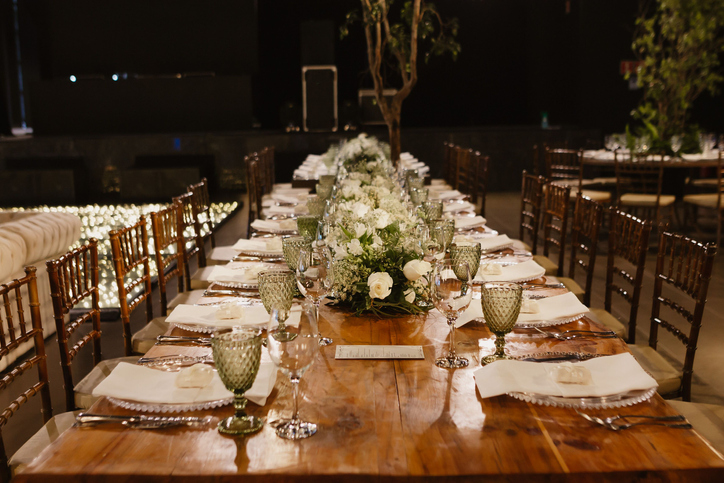Netflixs’ new show Mind Your Manners might have accidentally (or intentionally) been white-washing its first guest.
The first episode features student Stephanie Osifo, a Black woman with Nigerian roots living in Australia, who is ready to go from being a party girl to finally moving out of her parents’ house. She enlists etiquette instructor Sara Jane Ho to help her level up into adulthood, but the moments that ensue are cringy as fuck.
The Mind Your Manners host, who’s ironically Chinese, asserts that through her classes, her Black client would become her best self, but it quickly becomes clear that the goal is proximity to whiteness.

Source: Wirestock / Getty
The Cringiest Moments In The Show
The problematic scenes on Mind Your Manners seem endless.
In one racially tone-deaf scene, The Netflix show host instructs Osifo that “ladies” should be quiet. She has her participate in speech exercises where she essentially learns how to lower her voice to appear more demure. Black women, historically, have been silenced via slavery, the suffrage movement and even today.
The Chinese woman’s issues with her own culture, particularly Asian women being silenced, appear to spill over into her client’s world.
Etiquette, especially for women, is about “putting other people around you at ease,” explains Ho. But, the truth is that it’s well over damn due time that society takes action to help Black women feel safer – not the other way around.
Then there’s the style portion of the show. When we first meet Osifo, she represents her ethnic and cultural origins by rocking bright colors and bold patterns. Ho believes being sophisticated means toning it down and dressing Osifo in muted colors and bland designs– essentially stripping the young woman of her authenticity. She refers to Osifo’s former wardrobe as “slutty,” which insinuates that her body and the celebration of it are problematic.
Finally, the hair and makeup portion was extra cringy.
Everything about it is the opposite of progressive. First, Ho requires Osifo to remove all her makeup in favor of a natural look. The Chinese woman claims she’s helping the Nigerian-descent woman “accept herself.”
Osifo winds up breaking down in tears while removing her makeup for the cameras, and it doesn’t feel like a moment of radical self-love – it feels invasive. Her makeup makes her feel pretty – she expresses that. For some Black women, makeup itself is a form of resistance.
Ironically, while the instructor is all about “natural,” with the makeup, that’s nowhere to be seen in the hair. The stylist she brings in leaves Osifo with silky-straight, flat, and anything-but-natural hair. Since the creating of the CROWN Act (Creating a Respectful and Open World for Natural Hair), Black women don’t have to hide their natural hair to be deemed professional.
Ho’s own desire for proximity to whiteness is apparent as she “teaches” the Black woman etiquette from class standards inspired by pompous British and French aristocrats.









